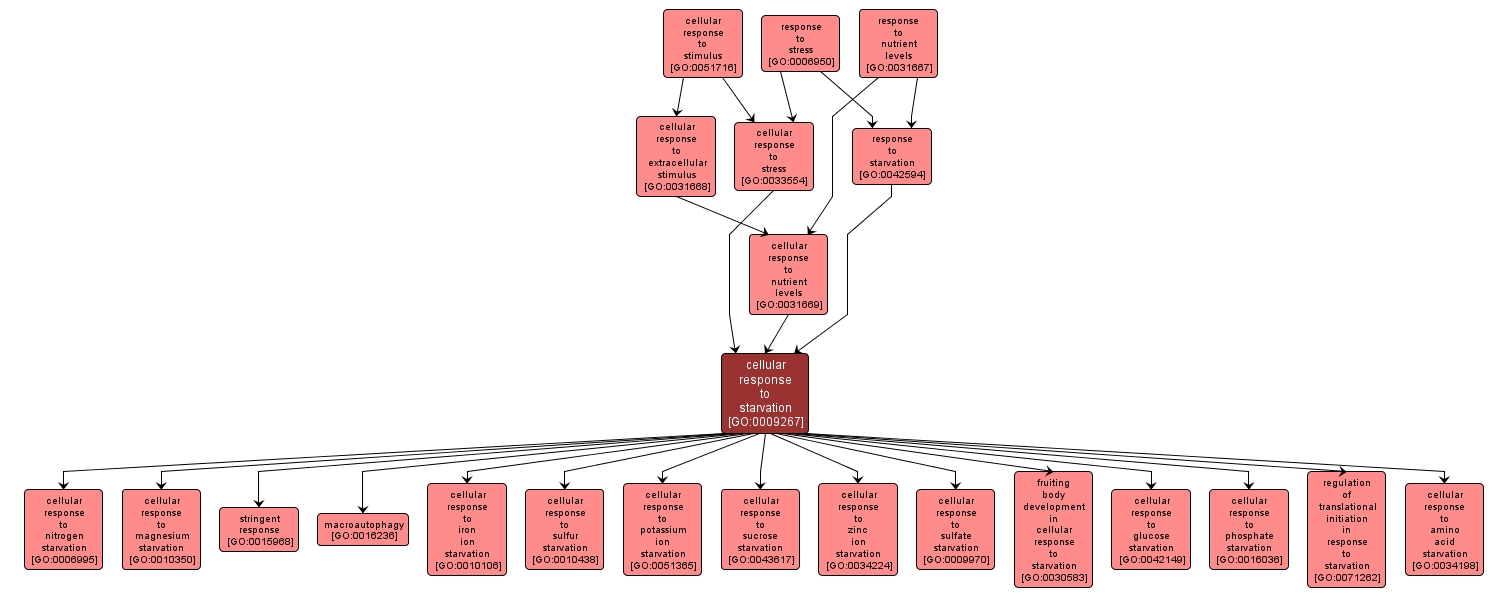GO TERM SUMMARY
|
| Name: |
cellular response to starvation |
| Acc: |
GO:0009267 |
| Aspect: |
Biological Process |
| Desc: |
A change in state or activity of a cell (in terms of movement, secretion, enzyme production, gene expression, etc.) as a result of deprivation of nourishment. |
|

|
INTERACTIVE GO GRAPH
|














